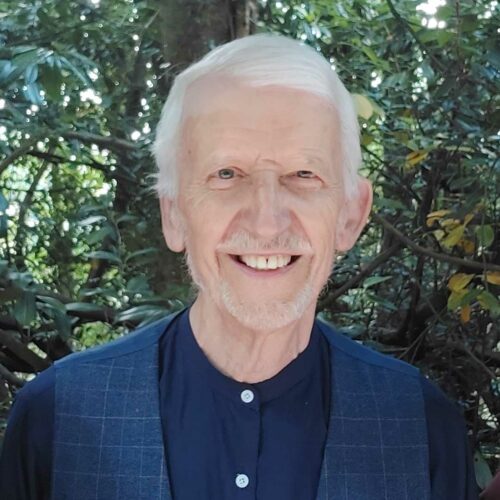Exploration of ultimate teachings requires listening, reflection/meditation rather than sitting to wait for an experience. Emptiness does not require experiences.
The ultimate reveals the emptiness of self, ego, I and my – including self interest, self help and self compassion.
This session will explore the contractions forming self and the way our minds have become wrapped up in roles and socialisation
With Christopher Titmuss recorded on January 21, 2024.
Found our teachings useful? Help us continue our work and support your teachers with a donation. Here’s how.
Discover more from the Dharma Library
-

Embodied Wisdom: the Fruit of Buddhist Practice
Recorded :
October 3, 2021 Cultivating embodied wisdom can provide us with lasting equanimity in the face of life’s inevitable ups and downs. During this session, Ronya offers Buddhist practices and frameworks to help us access deep peace and profound contentment for life’s precious journey.
-

Daily Meditation Recordings with Christopher Titmuss- Week of June 10, 2024
This week’s topic is “Letting Go. An Act of the Will?”
We pick up a hot coal in the morning from the wood burner.
Ouch, we let go immediately. No thought. No desire. Instant letting go.
The language of letting go has entered into the mind of the meditator.
It is often not a solution but an ambitious state of mind.
Letting go reveals an outcome of understanding.
We can tell ourselves a 1000 times we should let go and it’s to no avail.
The desire to let go shows we are not ready to let go.
We will explore the preparation for letting go and wise responses employing at times letting go.
-

Daily Meditation Recordings, with Yahel Avigur – Week of 14 July, 2025
We’re delighted to have Yahel Avigur guiding our Daily Meditation sessions this week. May these sessions enrich and support your practice.
This week’s theme is: Metta — Healing All Aspects
This week, we’ll open to the healing power of metta – loving-kindness, or goodwill – as a transformative force in our lives. We’ll practice offering this gentle warmth first to those we naturally care about, and to ourselves. Gradually, we’ll widen the circle, allowing metta to infuse our relationships with neutral people, those we find difficult, and ultimately all beings. As kindness suffuses more corners of our hearts and lives, we may begin to discover a growing sense of spaciousness and connection – and with it, insight, balance, and inner freedom.
Our Dharma Library thrives through collective generosity. Your donation helps sustain this offering for our entire community.
-

As wide as life and as open as space: practicing inclusivity.
Recorded :
March 22, 2015 As we get familiar with the practice of meditation and the language of Dharma teachings, we can find ourselves getting comfortable, even complacent. Yet our practice in many ways is designed to make us uncomfortable! Designed to keep us open to ambiguity and uncertainty, to invite us to question and explore rather than to settle…
-

Peace in this very everyday life.
Recorded :
January 31, 2016 In the best of circumstances the path of life is a bumpy road. The practice of embodied presence opens the possibility to understand and transform our habits of dissatisfaction and distraction, and invites spaciousness and openness in our day-to-day lives. Becoming intimate, moment by moment, with living reality may expand our life-perspective and attune us…
-

The voiceless voice of awareness.
Recorded :
June 26, 2016 How often does it seem that the master of your life is the conditioned mind? To what degree does this mind of limitation color your experience? When the conditioned mind reigns, it becomes difficult to hear the still, small, voice within. This voice could also be talked about as the voiceless voice of awareness itself….
-

Communication, Clarity and Consequences
Recorded :
September 30, 2018 Everything that we write matters. Everything that comes out of our mouth matters. Important communications require calm and insightful reflection afterwards. Wisdom and Liberation of the voice support each other. Clear communication with another (spoken or written) expresses itself freely from the extremes of positivity and negativity. The middle way shows itself in exploration of…
-

Daily Meditation Recordings, with Martin Aylward – Week of November 23, 2020
We’re fortunate that Martin Aylward has generously offered to lead our daily meditation sessions for Europe and the UK this week. To find out more about Martin, and view his other recordings on the platform, click here.






Discussion